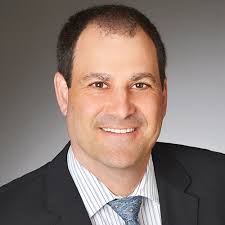Related Research Articles

Michael Robertson is the founder and former CEO of MP3.com, an Internet music site. In the years following his departure from MP3.com Robertson has launched several companies, including Linspire, SIPphone, MP3tunes, and Ajax13. He is also founder of OnRad.io, a search engine for radio and DAR.fm, a website for recording audio from internet radio.

Universal Music Group N.V. is a Dutch–American multinational music corporation under Dutch law. UMG's corporate headquarters are located in Hilversum, Netherlands and its operational headquarters are located in Santa Monica, California. The biggest music company in the world, it is one of the "Big Three" record labels, along with Sony Music Group and Warner Music Group. Tencent acquired ten percent of Universal Music Group in March 2020 for €3 billion and acquired an additional ten percent stake in January 2021. Pershing Square Holdings later acquired ten percent of UMG prior to its IPO on the Euronext Amsterdam stock exchange. The French Bolloré family still owns 28 percent of UMG. The company went public on September 21, 2021, at a valuation of €46 billion.

Music Canada is a non-profit trade organization that was founded April 9, 1963 in Toronto to represent the interests of companies that record, manufacture, produce, and distribute music in Canada. It also offers benefits to some of Canada's leading independent record labels and distributors. It was known as the Canadian Record Manufacturer's Association until 1972 and the Canadian Recording Industry Association (CRIA) until 2011.

Yahoo! Music Radio was an Internet radio service. The service, which featured both an advertising supported free version and a subscription fee-based premium version, allowed users to create personalized Internet radio stations by rating songs selected by a recommender system. Users were also able to listen to music from 150 preset Internet radio stations.

The music industry refers to the individuals and organizations that earn money by writing songs and musical compositions, creating and selling recorded music and sheet music, presenting concerts, as well as the organizations that aid, train, represent and supply music creators. Among the many individuals and organizations that operate in the industry are: the songwriters and composers who write songs and musical compositions; the singers, musicians, conductors, and bandleaders who perform the music; the record labels, music publishers, recording studios, music producers, audio engineers, retail and digital music stores, and performance rights organizations who create and sell recorded music and sheet music; and the booking agents, promoters, music venues, road crew, and audio engineers who help organize and sell concerts.

Yahoo! Music was a brand under which Yahoo! provided music services including Internet radio, a digital music store, music streaming service, media player software, and original programming.
Hollywood accounting is the opaque or "creative" set of accounting methods used by the film, video, television and music industry to budget and record profits for creative projects. Expenditures can be inflated to reduce or eliminate the reported profit of the project, thereby reducing the amount which the corporation must pay in taxes and royalties or other profit-sharing agreements, as these are based on net profit.

Frederick Woodruff "Ted" Field is an American media mogul, record executive, entrepreneur and film producer.

The Recording Industry Association of America (RIAA) is a trade organization that represents the music recording industry in the United States. Its members consist of record labels and distributors that the RIAA says "create, manufacture, and/or distribute approximately 85% of all legally sold recorded music in the United States". RIAA is headquartered in Washington, D.C.
Grooveshark was a web-based music streaming service owned and operated by Escape Media Group in the United States. Users could upload digital audio files, which could then be streamed and organized in playlists. The Grooveshark website had a search engine, music streaming features, and a music recommendation system.

Hotfile was a one-click file hosting website founded by Hotfile Corp in 2006 in Panama City, Panama. On December 4, 2013, Hotfile ceased all operations, the same day as signing a $4 million settlement with the Motion Picture Association of America (MPAA); the settlement had previously been misreported as $80 million.

F.B.T. Productions, LLC, et al. v. Aftermath Records, et al. 621 F.3d 958 was a case in which the United States Court of Appeals for the Ninth Circuit dealt with how Federal Copyright Law applied to the sales and licensing contracts of music downloads and other downloadable copyrighted material. Specifically, the circuit court ruled that a licensing provision in the contract between F.B.T. Productions and Aftermath Records unambiguously applied to permanent downloads and mastertones offered through third party distributors. After reviewing the First Sale Doctrine and the nature of Aftermath's contracts with its distributors, the circuit court concluded that such downloads constituted a licensing of copyrights rather than a sale, causing Aftermath to pay higher royalties to F.B.T. under their agreement.
Rightscorp. Inc is a Los-Angeles based copyright enforcement company, which locates alleged copyright violators and collects money from legal damages as well as out of court settlements on behalf of the copyright holder(s). Rightscorp manages copyrights of videos, music, and video games.
Marc Toberoff is an intellectual property attorney specializing in copyright and entertainment litigation.

Kesha v. Dr. Luke refers to a series of lawsuits and countersuits between the singer Kesha Rose Sebert (Kesha) and the music producer Łukasz Sebastian Gottwald. Sebert filed a civil suit against Gottwald in October 2014 for infliction of emotional distress, sex-based hate crimes and employment discrimination. Gottwald filed a lawsuit in New York Supreme Court in which he sued Sebert and her mother, Rosemary Patricia "Pebe" Sebert, for defamation and breach of contract.

Play Records is an independently owned Canadian record label operating in Toronto, Ontario, Canada.

The Orrin G. Hatch–Bob Goodlatte Music Modernization Act, or Music Modernization Act or MMA is United States legislation signed into law on October 11, 2018, aimed to modernize copyright-related issues for music and audio recordings due to new forms of technology such as digital streaming. It is a consolidation of three separate bills introduced during the 115th United States Congress.
Bryan Freedman is an American entertainment lawyer and litigator. He is co-founder of the Los Angeles–based law firm Freedman Taitelman + Cooley LLP.

Jeffrey D. Goldman is an American former entertainment lawyer, best known for his music litigation practice and for his involvement in two influential internet law cases: A&M Records v. Napster and Perfect 10 v. Google. His cases dramatically impacted the development of Internet law and on the music industry's transformation from physical sales to digital distribution of music. He was also part of the litigation team that represented the plaintiff victims in the O. J. Simpson civil case.
Mitchell Silberberg & Knupp is a law firm founded in Los Angeles, California, with additional offices in New York City, New York, and Washington, D.C. It has historically been recognized as one of Los Angeles's most prominent entertainment law firms, though it also provides legal services to clients outside the entertainment industry.
References
- 1 2 Gardner, Eriq (19 March 2015). "Universal Music Settling Big Class Action Lawsuit Over Digital Royalties (Exclusive)". hollywoodreporter.com. Hollywood Reporter. Retrieved 31 December 2023.
- 1 2 Gardner, Eriq. "Sony Pays $8 Million to Settle Digital Music Class Action Lawsuit". www.hollywoodreporter.com. The Hollywood Reporter. Retrieved 1 February 2024.
- ↑ Manatt, Phelps & Phillips. "Universal Music Group settles with recording artists over digital downloads". www.lexology.com. Lexology. Retrieved 1 February 2024.
- ↑ "Market share of record companies in the United States from 2011 to 2019, by label ownership". www.statista.com. Statista. Retrieved 1 February 2024.
- ↑ Cabraser, Elizabeth; Pincus, Andrew. "Claims-Made Class-Action Settlements". judicature.duke.edu. Judicature. Retrieved 1 February 2024.
- ↑ "Allman Brothers and Cheap Trick possibly have separate digital deals to Sony's proposed class action settlement". archive.completemusicupdate.com. CMU. Retrieved 1 February 2024.
- ↑ Houghton, Bruce. "Sony Settles Allman Brothers Digital Music Lawsuit For $8 Million + 3%, Will Others Follow?". www.hypebot.com. HypeBot. Retrieved 1 February 2024.
- ↑ Resnikoff, Paul. "Lawyers Are Getting One-Third of Sony's $8 Million Legacy Artist Settlement". www.digitalmusicnews.com. Digital Music News. Retrieved 1 February 2024.
- ↑ Christman, Ed. "Warner Music Group Submits Class Action Settlement For Digital Royalties Suit". www.billboard.com. Billboard. Retrieved 1 February 2024.
- ↑ Gardner, Eriq. "Universal Music Agrees to Pay $11.5 Million to Settle Digital Royalties Class Action". www.hollywoodreporter.com. The Hollywood Reporter. Retrieved 1 February 2024.
- ↑ Gardner, Eriq. "Universal Music Agrees to Pay $11.5 Million to Settle Digital Royalties Class Action". The Hollywood Reporter. Retrieved 1 February 2024.